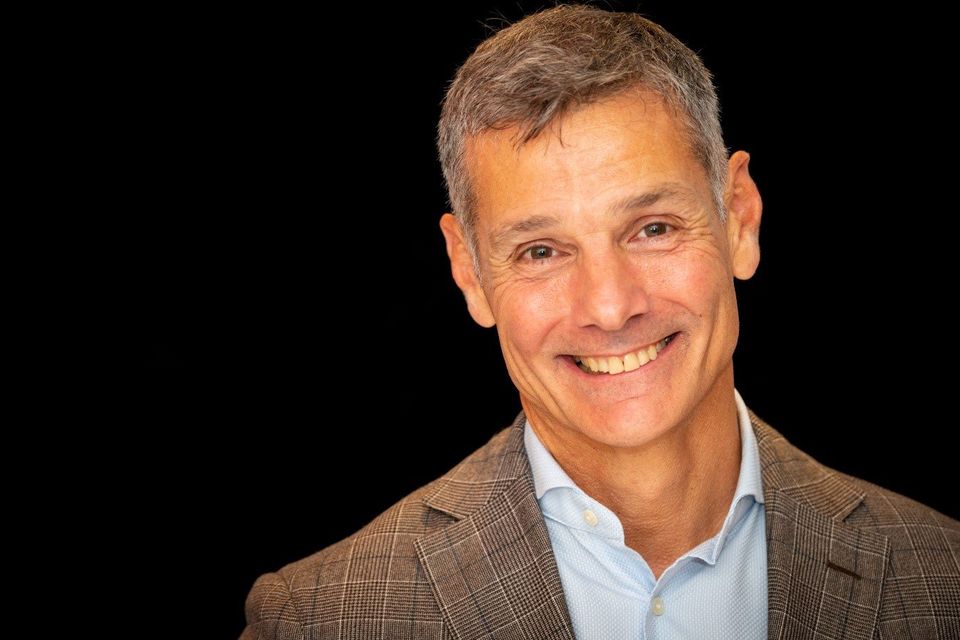Growth or Disorder? The Paradox of Adversity, Stress and Trauma
John Peters & David Nikolich
The first words we often hear in news stories about extreme adversity or traumatic events are ‘Post-Traumatic Stress Disorder’. PTSD is a psychological disorder for someone who is experiencing reoccurring high anxiety from a previous distressing event. By contrast, how often do news stories mention ‘Post-Traumatic Growth’? This is where people experience positive psychological changes in coming to terms with highly stressful and challenging life events.
You may recognise ABSTRACT partner, John Peters. He has every right to be listed in the former category but conforms to the later. Indeed, he holds an intuitive resonance with Nietzsche’s famous claim, “That which doesn’t kill me makes me stronger”.
This year marks the 30th Anniversary of Operation Desert Storm, the military operation to drive Saddam Hussein's Iraqi forces from Kuwait. On John's first mission, aged 29, he flew an ultra-low level daylight aerial bombing mission on Ar Rumaylah Southwest Air Base. Unfortunately, his Panavia Tornado GR.1 of XV Squadron was hit at just fifty feet by a shoulder-launched SAM SA-14 missile.
After capture John experienced physical and psychological brutality. He came to the world’s attention in January 1991, when his bruised and battered face flashed onto television screens around the world as a prisoner of war.
"We all have dark days. My darkest days were in 1991; I was a Tornado pilot shot down and captured and held as a POW for 7 weeks. I know what it is like to be isolated, vulnerable, and alone. It is a sad reality of modern life: there is an anxiety epidemic, not necessarily in numbers but how we cope given the increasing isolation and individualisation of society. And now with Covid-19, we are living in our own cells."
How did John cope with uncertainty, uphold mental wellbeing, and grit it out? How do you deal with the unexpected and manage the pressure? And how do you deal with uncertainty, move forward and adapt to life challenges?
“At the extreme, you discover your own humanity. There is a tranquillity and honesty in reflection. Calmly you accept where you are, accept your weaknesses, and it is in that moment you truly understand yourself. Then you begin to win. No ‘should haves’ or ‘could haves’...you start to learn and adapt to the challenge. We all make mistakes, we are human, but you realise that your power rests in the speed at which you learn...”
Confronting reality is vital to success. Balancing realism and optimism in a dire situation is paramount. This aligns with the Stockdale Paradox, named after the Vietnam POW, Admiral Stockdale, who described the ability to balance the brutal reality with enduring hope.
Extreme experiences can illicit extreme emotional responses to which we can ascribe false meaning. Over time, this can develop into trauma. Therefore, it's important to focus on learning from adversity rather than labelling. What is the key to unlock this learning? Forgiveness. Forgive yourself for weaknesses exposed or vulnerabilities experienced. Forgiveness frees you from the past, enabling you to learn in the present, releasing the ability to prepare and adapt to the future: from black box to white light.
David Nikolich, MD of ABSTRACT, furthers this suggesting that when things are clearly out of our control, we arrive at the mercy of others. However, most things, most of the time, are surprisingly within our control, to which we can apply unconscious or conscious choice. Unconscious choice is our automatic reaction to any given situation. Conscious choice requires a fixed way of thinking or attitude to decide. John has proven that by consciously choosing his preferred beneficial reactions, he has shaped and defined his personal growth.
John’s image became the spirit of hope for many people back home. At the end of the war, he was released and returned to the RAF for a further ten years. John, being the modest soul that he is, said that he found it difficult to live up to the heroic image the public had of him. Those who have had the pleasure of getting to know John would describe him as a 'True British Gent and a Quiet Hero'!









